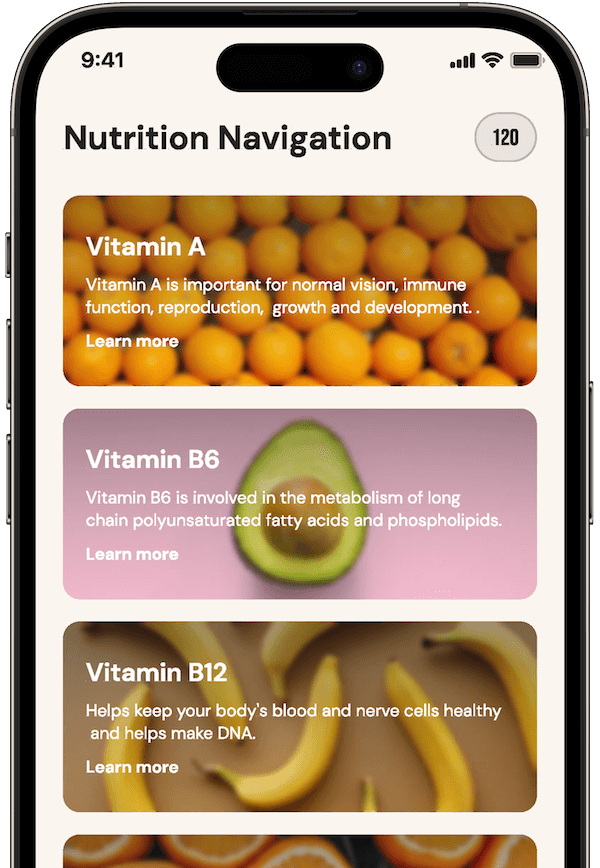As someone who has personally struggled with adenomyosis, I know firsthand how my daily habits impact my symptoms. Back in the day, (this is absolutely not a brag) I could consume a solid eight shots of coffee in a morning, I mean I dated baristas for a reason!
Between working in the high-pressure dance industry, maintaining study, and the everyday pressures of life, my caffeine receptors were screaming for mercy.
After a nine-month hiatus from coffee, I found that now, one cup a day, most days, works great for me. I’ve learned to keep my tolerance in check by taking breaks every once in a while, and now my symptoms have never been better. So, could coffee be making your adenomyosis worse? Let’s dive into the research and my journey to find out.
Coffee can potentially exacerbate adenomyosis symptoms due to its caffeine content, which may influence hormone levels and increase inflammation. While some people with adenomyosis might not notice any adverse effects, others might benefit from reducing or eliminating coffee.
What is Adenomyosis?
Adenomyosis is a condition where tissue from the lining of your uterus grows into your uterine wall, causing your uterus to double or triple in size. This can cause heavy menstrual bleeding, severe cramps, chronic pelvic pain, and bloating. Nutrition and lifestyle can significantly impact these symptoms, making it essential to consider what we consume daily.
How Does Coffee Affect the Body?

Coffee is a popular beverage enjoyed by millions for its stimulating effects. It can improve focus and alertness, thanks to its caffeine content. However, coffee can also cause negative side effects, such as jitteriness, increased heart rate, and digestive issues, especially when consumed in large quantities.
How Does Coffee Affect Women’s Hormones?
Caffeine can also influence hormone levels in the body. Studies have shown that caffeine can raise oestrogen levels, which might be problematic for those with hormone-sensitive, particularly oestrogen-dominant conditions like adenomyosis. Elevated oestrogen levels can potentially worsen the symptoms of adenomyosis, such as pain and inflammation.
Caffeine has also been linked to increased cortisol secretion, which can negatively impact the production of Progesterone. As I have explained in a fun video using fruit on my Instagram, Cortisol and Progesterone hormones tend to not get along and when Cortisol goes up, Progesterone can go down.
Is Coffee Bad for Adenomyosis?

For some individuals, coffee can exacerbate adenomyosis symptoms. The caffeine in coffee can increase inflammation and contribute to hormonal imbalances, potentially worsening pain and bleeding. It’s important to pay attention to how your body responds to coffee and consider reducing your intake if you notice a correlation between coffee consumption and symptom severity.
As previously mentioned, caffeine can also increase oestrogen levels or cortisol secretion, which can aggravate adenomyosis symptoms. Coffee’s potential impact on adrenal function also plays a role here, leading to increased stress hormones, which might further impact hormone balance and inflammation.
Do Women With Adenomyosis Need To Stop Drinking Coffee?
What does this mean for women with adenomyosis? Well, it depends. Balance is key, and I don’t want to give up my cherished cup of coffee, so I found what works for me. One cup an hour after breakfast helps me avoid the worst of the potential side effects while still enjoying my favourite beverage. Having coffee after breakfast is beneficial because consuming coffee first thing in the morning, especially after a restless night, can disrupt blood sugar levels.
By waiting an hour, you allow your body to stabilise and better handle the caffeine and it also avoids caffeine interfering with iron absorption – hot tip for my low iron ladies!
So no, this doesn’t mean that everyone needs to give up their cup of coffee. Taking breaks every now and then is always a good idea for anything when it comes to habit building. If you are as bad as I was, drinking eight cups a day at all hours, a decent break from coffee can help you get back to a place where one cup most days is enough.
Are There Benefits to Drinking Coffee with Adenomyosis?

While coffee can have some negative effects, it’s also worth noting that it contains antioxidants, which are beneficial for overall health.
Some studies suggest that moderate coffee consumption can reduce the risk of certain diseases. However, for those with adenomyosis, the potential negative effects of caffeine may outweigh these benefits.
How Coffee Impacts Adenomyosis at Different Stages of the Menstrual Cycle
Different women may experience varying effects of coffee on adenomyosis symptoms at different stages of their menstrual cycle. For some, coffee might worsen symptoms during the menstrual phase due to increased cramps and inflammation.
Others might find that coffee impacts them more during the ovulatory or luteal phases, when hormonal changes are most significant. Since caffeine can affect oestrogen and cortisol levels, its impact can vary depending on the stage of the cycle and individual sensitivity.
Understanding your body’s response at each stage can help you make informed decisions about coffee consumption and manage adenomyosis symptoms more effectively.
For me personally, I don’t notice a massive difference at each stage, but we are all unique little creatures so keep track of how you feel next time you order that oat milk latte!
What Alternatives to Coffee Might Be Better for Adenomyosis?

What Are Some Healthy Substitutes for Coffee?
If you find that coffee exacerbates your adenomyosis symptoms, there are numerous healthy alternatives to consider. Herbal teas, such as chamomile, dandelion or ginger tea, offer a soothing and caffeine-free option.
I personally grate fresh ginger in the morning and pop it into a tea infuser as a little ritual to begin my day, this may also help to decrease the pesky inflammation associated with adenomyosis. Green tea is another excellent choice, providing a lower caffeine content along with abundant antioxidants.
Additionally, functional mushroom hot drinks are now available, delivering an energy boost without the high caffeine levels. For those who still crave the taste of coffee, decaf options are also a great way to enjoy your favourite beverage without the potential hormonal disruptions caused by caffeine.
How Can Nutrition Improve Adenomyosis Symptoms?
Improving your approach to food can significantly impact adenomyosis symptoms. Incorporating anti-inflammatory foods, such as leafy greens, fatty fish, and nuts, can help reduce inflammation and manage pain.
Using the Unprocessed App can help you track your nutrition and identify foods that may trigger symptoms, providing personalised insights for better management of adenomyosis. With the app, you’ll be able to monitor your dietary habits, recognize patterns, and make informed decisions about your health.
Join the waitlist now to be among the first to experience the benefits of the Unprocessed App when it launches. Take control of your adenomyosis symptoms and improve your quality of life with personalised nutrition insights.
FAQs About Coffee and Adenomyosis
Can reducing coffee intake improve adenomyosis symptoms?
Yes, some people may find symptom relief by reducing or eliminating coffee..
Are decaffeinated coffee options better for adenomyosis?
Decaffeinated coffee may be a better option, but individual responses can vary.
How does caffeine withdrawal affect adenomyosis?
Withdrawal symptoms can be challenging but may lead to improved symptoms over time.
What other lifestyle changes can help manage adenomyosis symptoms?
Regular exercise, stress management, and adequate sleep can all contribute to symptom relief.
Closing Thoughts
Coffee can have mixed effects on those with adenomyosis. While it has some health benefits, its caffeine content can potentially worsen symptoms for some people. It’s important to listen to your body and consider reducing or eliminating coffee if you notice it aggravates your symptoms.

Tools like the Unprocessed App can help you track your nutrition and manage your condition more effectively, so join our waitlist today. As a qualified nutrition coach certified by the Institute of Integrative Nutrition in New York, I’m here to support you in making informed choices for your health. Because let’s face it, we all want our mornings to be as smooth as possible—whether that means a clear mind or a happy uterus.
And just remember, if you ever catch yourself reaching for that eighth cup of coffee, it might be time to take a step back and reconsider!



